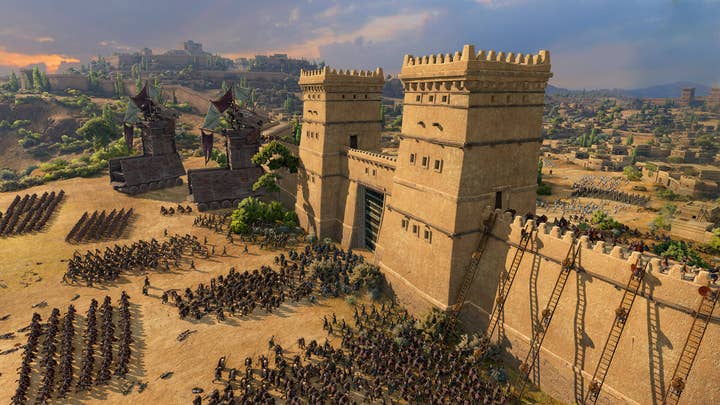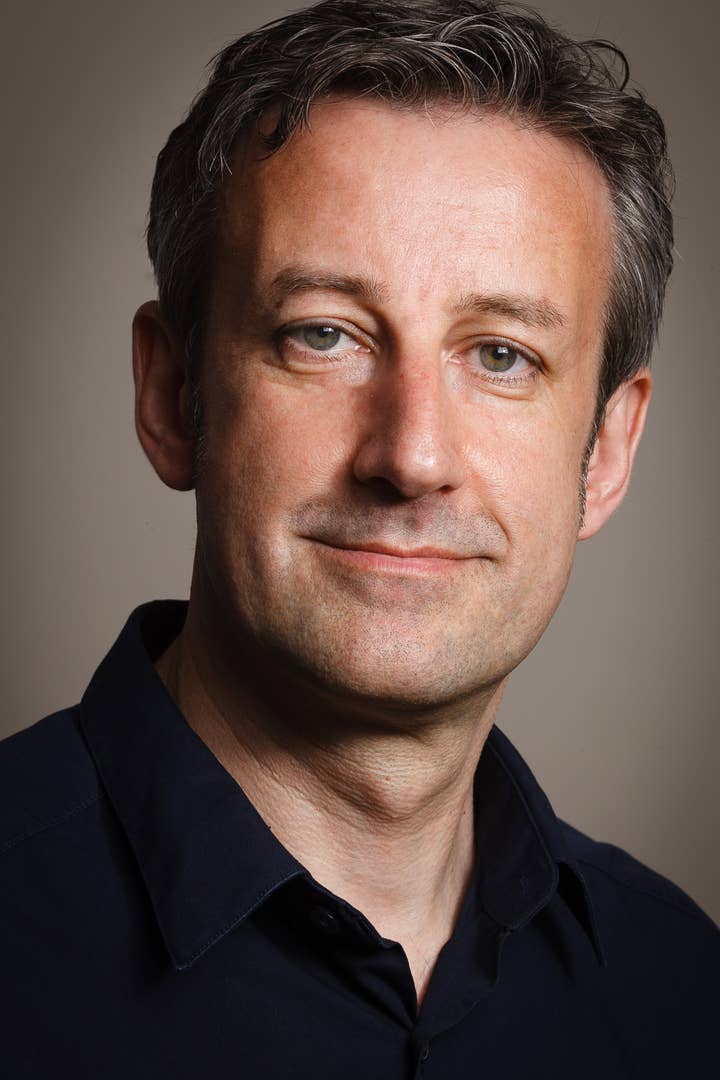How 'buoyant' Sega Europe is helping Sega Sammy stay afloat
The publisher's Gary Dale and Tim Heaton say arcade closures and the call for voluntary retirement don't paint the full picture
While the majority of the games industry has fared well during the pandemic, aided by the increased amount of time people are spending at home, some companies have been impacted in different ways.
Sega Sammy Holdings, the parent company of Sega, has certainly suffered. It reported operating losses and decreased sales for the first half of the financial year, sold the majority of its shares in the Sega Amusements business, and even shut down the company's famous Akihabara arcade.
Earlier this month, it called for 650 of its 9,000-strong staff to quit their jobs.
But Sega Europe president and COO Gary Dale says this isn't as bleak a picture as it may seem, especially when it comes to the long-running video games brand. The redundancies, he tells us, are entirely targeted at the Japanese side of the business -- and specifically at the resorts and pachinko divisions which, as you might imagine, have struggled during the pandemic.

"There's no impact to the games business, whether that's in Japan, or certainly outside Japan in the US or in Europe," Dale tells GamesIndustry.biz regarding the call of voluntary retirement.
Chief studios officer Tim Heaton says it can be a challenge for the Western side of the business to accurately reflect the situation for the video games arm when negative headlines centre around the parent holding company.
"I think sometimes the investor relations stuff that comes out does [focus on] Sega Sammy and Tokyo, which has its own spin and is very Japanese-centric," he says. "But a major part of the business is with Sega Europe and Sega America.
"We are extremely close to Sega Japan. I think you'd be surprised at how often we speak to our Japanese bosses in Tokyo -- it is every day, and the business runs really tight together."
Sega Europe, then, is in "rude health," according to Heaton, enjoying much the same boost as other games firms during this turbulent year. While it doesn't release specific numbers beyond those included in group-wide financials, Dale reports their side of the business is "significantly ahead of plan."
"We saw higher levels of engagement across all the platforms as we went into lockdown in March," he says. "Those resulted in higher levels of sales, and we've continued to be a buoyant business since then."
"People think 'Sega Sammy are really struggling' but they're investing in us"
Tim Heaton, Sega Europe
Heaton adds that it's not just sales, but monthly active users for its games as well. As lockdowns have been imposed in various regions around the world, Sega Europe has seen dramatic changes, with the exec adding: "We certainly beat all our records during lockdown."
In a way, this increased level of engagement has been particularly beneficial for Sega's games business, given that the publisher was originally looking at a comparatively quiet year. While the annual Football Manager, a new Yakuza and A Total War Saga: Troy all released this year, there has been no Sonic, no tentpole Total War, and no other flagship release on the slate. Even the Xbox and PlayStation Olympic video game was delayed. And yet, as mentioned, sales are still up.
"We were already reliant on catalogue for the year anyway because we knew we had fewer frontline releases," Dale acknowledges, "but the catalogue has performed better. We've had a better year than we would have expected."
Heaton adds: "The beauty of the business is we have very long-tail games -- titles like Total War that sell for a long time and have huge amounts of post-release content. That's what we've done well on. There have been great discount opportunities that we've taken advantage of, and we've been producing downloadable content throughout the year, so that's added a huge amount of revenue upside for us."

Again, unable to reveal specific numbers, Heaton reports the release of Troy on the Epic Games Store "did great" and Sega is "super happy" with its performance.

In addition to long-tail games, the execs say Sega benefits from its structure, which is built around six studios -- most of which have a flagship brand to their name, whether its Creative Assembly's Total War or Sports Interactive's Football Manager.
While the publisher knows it can rely on these brands, it is building on what Heaton describes as a "continual growth phase" -- which the company was in the midst of even before the pandemic -- to further expand what these developers offer.
"Each one of our studios really does own a franchise, and they're all mature now by and large," he says. "So what we're trying to do now is look at new IP. There's a new FPS game coming from Creative Assembly, and they're growing teams around new IPs. Our internal studios have this two-pronged strategy: do more with what you've got, and think about new IP."
This is combined with the work of Sega Searchlight, a separate arm that seeks studios the publisher can work with in a third-party capacity, whether it's bringing their games to market or serving as an incubator. The ultimate goal of Searchlight is to find relationships that can become merger and acquisition opportunities -- the prime example being Two Point Hospital developer Sega acquired last year.
"The business is in rude health," says Heaton. "We're growing. When we ask for things from Sega Japan, we get the investment from every level. We've taken three new studio spaces during lockdown for three of the studios in Europe, finding more space for the future, building out, etc -- the sort of opportunities that are counter to people thinking 'Oh, Sega Sammy are really struggling.' They're investing in us at the moment."
"Sega Sammy Holdings sees the games industry as a growth opportunity, and I don't see that changing"
Gary Dale, Sega Europe
It's not all about growing Sega's games business, of course. Dale reports that as soon as COVID-19 hit, all divisions were asked to look at their business plans and identify ways to contribute more to the group, helping the parts that would struggle during the pandemic -- namely the resorts and pachinko divisions.
As Heaton mentioned, Sega Europe has taken advantage of as many promotional and discount opportunities as possible this year to drive more revenue than it would have normally seen in a quiet year, thus doing its part to aid its sister businesses in Japan.
"But it would be the same if it were the other way around," says Dale. "If we were the part of the company in trouble, the other parts would look to help us out. So it was easy to do, and we're looking to do whatever we can to support the parts of the company that are struggling with what is a highly unusual situation.
"What was clear from [management] was they didn't want to do anything that would compromise the long-term quality of the company. It wasn't a case of taking any action that ultimately we might regret, but we should look to run the businesses as aggressively as we can to try and generate funds to support the parts of the group that are having a more difficult time."
This year will likely prove to be formative for many businesses, with some restructuring or even streamlining to not only cope with the pandemic but also prepare for the post-pandemic world. However, in Sega Sammy's case, the company is confident that its business structure will not require too significant a change from what it was before.
"There was nothing wrong with the [resorts and pachinko] businesses pre-lockdown," Dale explains. "It's just been the lack of people travelling or out and about in the city centres of Japan that have caused problems, and the view is they'll recover as and when we all get through this... They're not in long-term trouble, they are just short-term impacted by the COVID situation.
"Similarly, there was already a view that the games business represented a high-growth area, and we've seen that from the investment we've made -- Sega Europe, for example, has acquired Two Point, Relic, Amplitude. So this has already been a growth part of the business for them, and that will continue. Sega Sammy Holdings sees the games industry as a growth opportunity, and I don't see that changing.
"The goal is to get through this pandemic."
